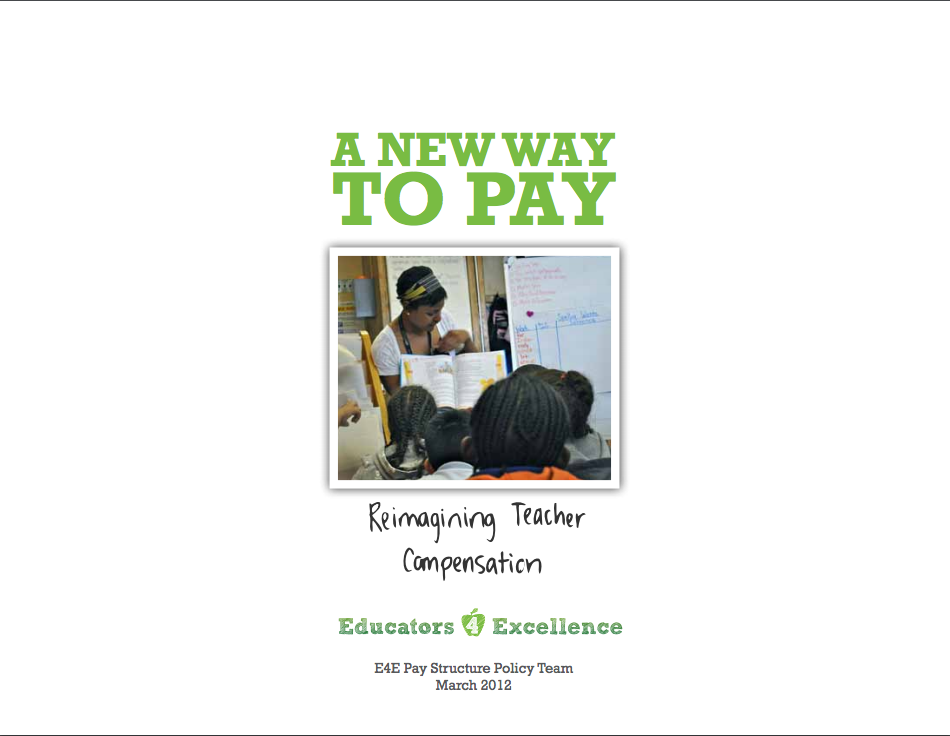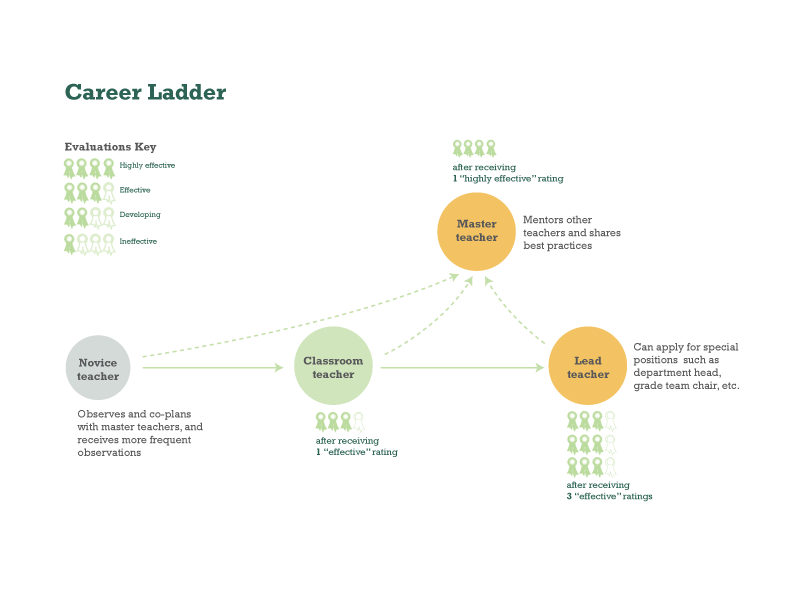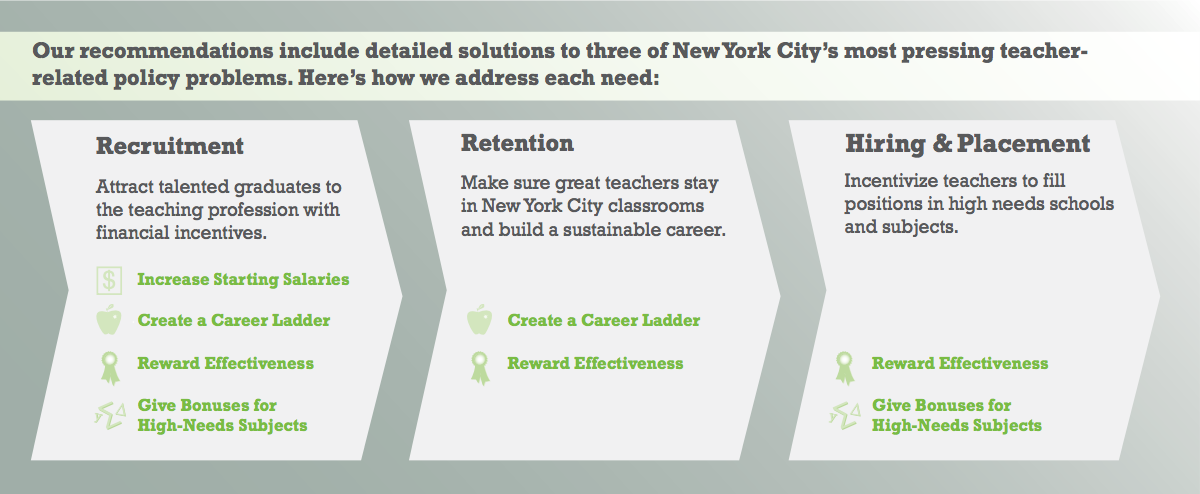A New Way to Pay
Reimagining Teacher Compensation
March 2012

Millions of us entered the classroom because we wanted to close the achievement gap, and we know that great teaching has transformative effects on students’ lives. But our pay – and society’s respect for our vocation – has not caught up to the increasing complexity of our profession. We are paid using the same antiquated system established four decades ago: incremental salary increases with every new contract, automatic raises for time in the classroom regardless of our success, and rewards for graduate school classes that are required by law but have shown no correlation with teacher effectiveness.
Our salaries should reflect our value as central figures in the education of our next generation. Many of us want increased responsibility – but we should not have to leave the classroom and become administrators to get it. We want to be recognized financially for our successes, as our peers in virtually every other profession are. We want to grow our supply of excellent teachers by recruiting and retaining professionals who might otherwise choose different fields.

Recommendations:
-
Attract talented graduates to the teaching profession with financial incentives, and specifically a higher starting salary.
-
Make sure great teachers stay in New York City classrooms and build a sustainable career by creating career ladders with additional opportunities for leadership.
-
Reward effective and highly effective teachers with bonuses to keep them in New York City classrooms, with larger bonuses for great teachers in struggling schools.
- Incentivize top-tier graduates to teach hard-to-staff subjects with hiring bonuses.
About the Teacher Action Team
We are a team of 16 New York City educators. In meetings after school, we examined New York’s current salary schedule, examples of successful and unsuccessful experiments in teacher pay, other research and our own classroom experiences. In December 2011, we sent out an open online survey to New York City teachers about our initial ideas and received more than 200 responses. We analyzed the results, discussed alternative suggestions that teachers submitted and modified our vision and recommendation accordingly.
Rebekah Adamek 4th-grade Teacher in Manhattan
Carl Carpenter 3rd-5th-grade ESL Teacher in Manhattan
Margaret Coppolo 7th-grade Special Education Teacher in Manhattan
Sara Griffin 1st-grade Teacher in Manhattan
Christopher Guidarelli 5th-grade Special Education Teacher in Brooklyn
Sierra Jorgensen Kindergarten Teacher in the Bronx
Laura Klein 8th-grade Special Education Teacher in the Bronx
Kane Koller 6th- and 7th-grade Science Teacher in Brooklyn
Albert Lowe ESL Teacher in the Bronx
Thomas McManus Middle School Science Teacher in the Bronx
Peter Orso 8th-grade Math Teacher in Brooklyn
Alyssa Rigg District 75 Alternate Assessment Coordinator in Brooklyn
Edward C. Robinson 7th- and 8th-grade Social Studies Teacher in the Bronx
Max Wagner 3rd-grade Teacher in Brooklyn
Henry Wellington 8th-grade Special Education Teacher in Manhattan
Lori Wheal 8th-grade English Language Arts Teacher and Master Teacher in the Bronx
